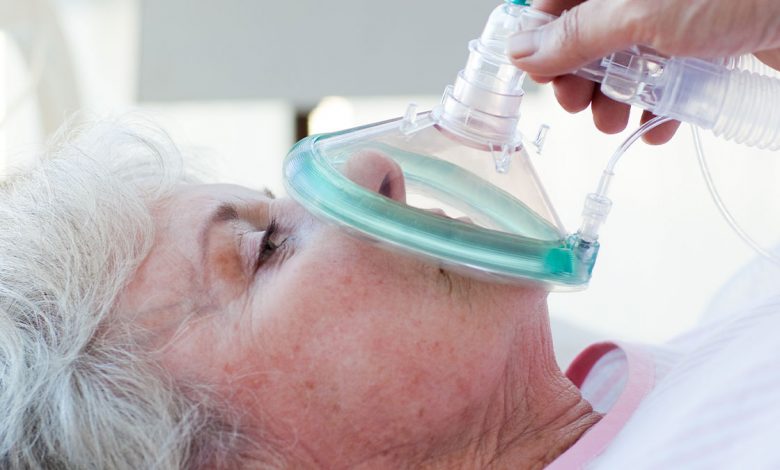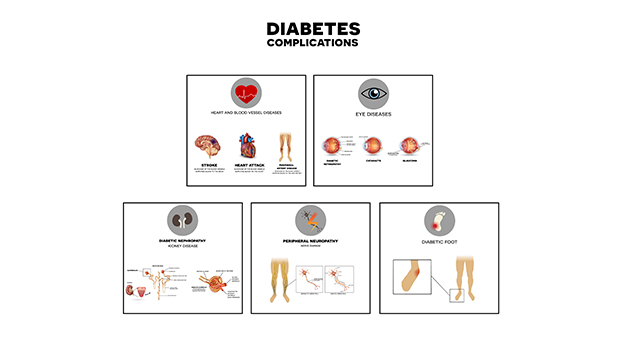Your T2D and Its Management Impacts Your COVID-19 Prognosis
A new study reveals the effects certain diabetes treatments, certain drugs, and elevated blood sugars have on COVID-19 mortality rates

Over the past few months, we have learned that having type 2 diabetes puts a person at greater risk of developing a more severe form of COVID-19, the disease caused by SARS-CoV-2. But little is known about why diabetes might increase infection risk and severity of symptoms or how different treatments, specifically different hyperglycemia treatments, might play into a person’s prognosis.
But now, a new study out of China, which was recently accepted for publication by the Journal of Diabetes, has finally uncovered some clues to help answer these questions.
Type 2 Diabetes Increases COVID-19 Risk
There have been numerous studies that have shown a strong link between type 2 diabetes and the development of severe COVID-19 symptoms.
This information is not entirely surprising considering that previous studies have shown that type 2 diabetes puts people at a greater risk for a number of viral infections, including SARS, MERS, and H1N1.
With COVID-19, in particular, living with type 2 seems to not just increase a person’s odds of getting ill, but of getting additional severe complications including severe pneumonia, organ impairment, and worsening inflammation.
Data out of China from early in the pandemic showed that the percentage of patients presenting with severe COVID-19 symptoms and type 2 diabetes made up 31.3% of all severe cases.
The overall prevalence of type 2 in China is 15.6%, indicating that type 2 patients are about twice as likely as others to present with a severe form of the illness.
But what exactly about this disease increases the risk and what methods may help achieve a better outcome were not well understood previous to this most recent study.
Findings From Study:
1. Mortality Rates Are Higher in Those with Elevated Blood Sugars
COVID-19 has shown a propensity for causing a number of very strange, seemingly unrelated, symptoms. One of the most recent to be discovered is increased blood glucose levels, in both patients who have diabetes and those that do not have diabetes.
The fact that this illness increases blood glucose independent of preexisting diabetes complicates the correlation between COVID-19 and severe symptoms in people with diabetes.
This study tells us:
- Patients with severe hyperglycemia show an increased risk for all-cause mortality.
- Moderate hyperglycemia is not associated with an increased risk for all-cause mortality.
- Fasting blood glucose numbers between 3.9 and 11 mmol/L (70-196 mg/dl) correlate with a higher rate of survival.
2. Glycemic Lowering Drugs Increase Survival Rates
Previous studies have indicated that treating certain patients with oral diabetes drugs, such as metformin, may be harmful to COVID-19 patients with hypoxia. Additionally, people who use insulin were found to have a higher complication risk than those on oral medications alone.
But this most recent study indicates that patients on some form of glucose lowering medication, either oral treatments or insulin, had a lower fatality rate than those who had been treated with diet alone.
This may be related to the fact that COVID-19 itself seems to raise blood sugars. Those already using blood sugar lowering medications may be less likely to experience this additional rise than those not taking these types of medications.
3. Use of Glucocorticoid Steroids Increases Mortality Rates
Glucocorticoids (GC), which are steroids that affect carbohydrate metabolism, have been used to treat many patients with COVID-19 due to their anti-inflammatory properties. While there is still some debate as to the overall safety and effectiveness of these drugs, this study clearly outlines the potential negative effect of using GC on patients with diabetes.
The researchers found that:
- The fatality rate for diabetics treated with GC was about three times higher than the fatality rate of people with diabetes who were not treated with GC.
- People with diabetes who were treated with GC had about twice the fatality rate compared to people without diabetes that were treated with GC.
- GC treatment was associated with increased IL-6 (an inflammatory marker) in people with diabetes but this increase was not present in people treated who did not have diabetes.
Overall Takeaways
This most recent study on COVID-19 and type 2 diabetes shows, once again, the importance of glucose management prior to and during a SARS-CoV-2 infection.
It also outlines a potential need for blood glucose lowering medications in all people with diabetes who are hospitalized with COVID-19, even if they have previously been able to manage their condition without medication.
Lastly, this study highlights the potentially fatal effects of using glucocorticoids to treat COVID-19 in patients with diabetes.





